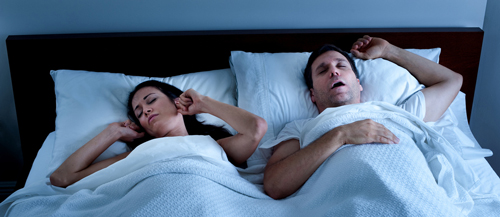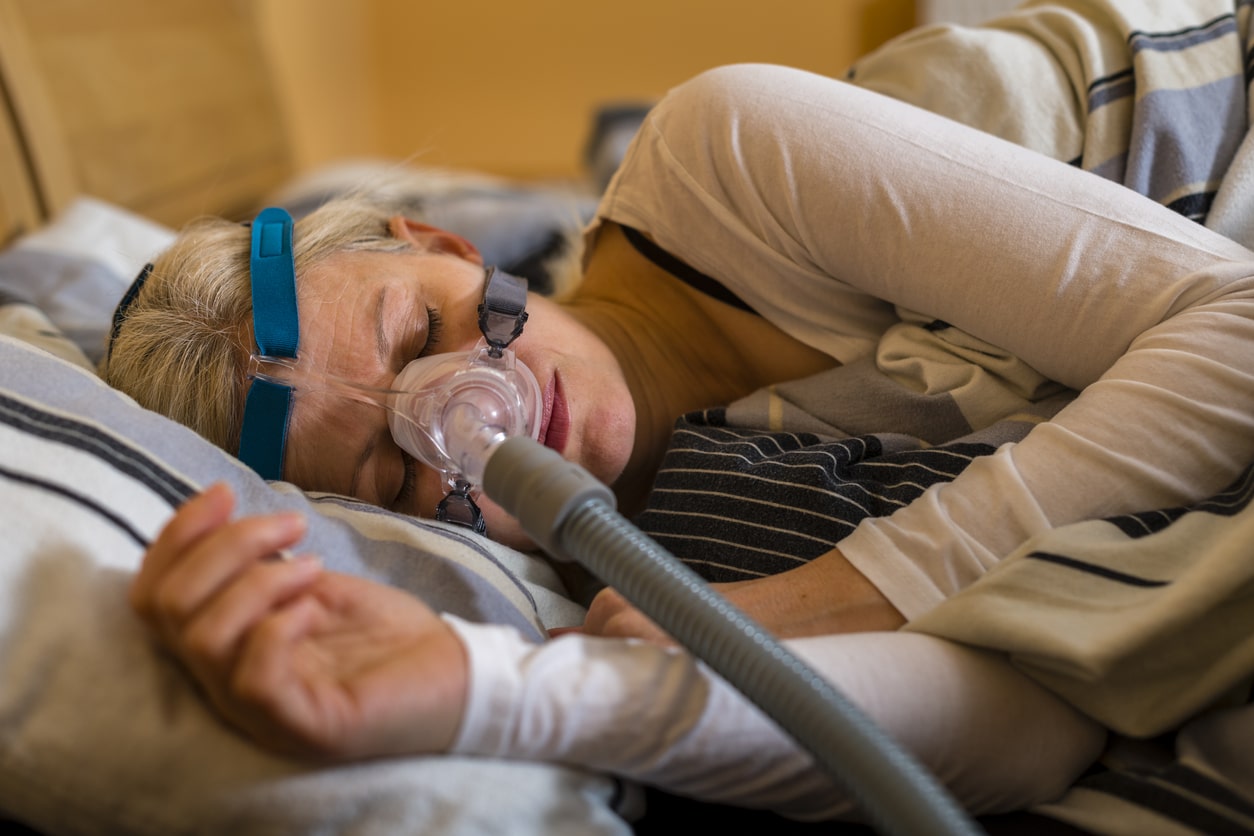Convenient Locations Serving Allston & Brighton, MA
Suffering from Sleep Apnea?
We can help.
People confuse occasional snoring with sleep apnea. A little congestion or sleeping in the wrong position can lead to occasional snoring, but sleep apnea is different — it is a serious sleep disorder that can have major impacts on your life.
At Soft-Touch Dentistry, we provide oral appliances to help our patients overcome mild to moderate sleep apnea.
What Is Sleep Apnea?

In sleep apnea, a person’s breathing becomes blocked many times while sleeping. This breathing interruption forces the body to awaken the person to open the airway, although he or she may not even realize they were awake briefly.
These interruptions are usually caused by soft tissue in the upper airway sagging down and blocking the airflow, and they can occur dozens of times each night. Sleep apnea affects millions of Americans, yet most don’t address the problem or even know they have it.
What Are The Symptoms Of Sleep Apnea?
These are the common symptoms of sleep apnea:
- Loud snoring
- Abrupt awakenings from sleep
- Awakening with shortness of breath
- Episodes of breathing cessation witnessed by another person
- Waking up with a headache in the morning
- Excessive daytime sleepiness
- Waking up with a dry mouth or sore throat
- Difficulty staying asleep
- Attention problems
- Irritability
What Causes Sleep Apnea?
The more common form of sleep apnea (and the form we treat at Soft-Touch Dentistry) is known as obstructive sleep apnea. It occurs when the muscles in the back of the throat relax. These muscles support all of the surrounding tissues such as the tonsils and the walls of the throat. When the muscles relax, the airway narrows or closes. Your brain senses this inability to breath and briefly wakes you from sleep to reopen the airway. These lapses in sleep can be so brief you don’t even remember them. These actions can involve a snorting, choking, or gasping sound and can repeat the pattern up to 30 times per hour all night.
Sleep apnea can have various causes:
- Enlarged tonsils or adenoids
- Cardiovascular problems
- Obesity
- Throat and tongue muscles that are abnormally relaxed
- Nasal congestion
- Smoking
- Family history
Patient Testimonial
"Excellent Job Cleaning My Teeth And Making Me Feel Comfortable
I have been going to Dr. Bidabadi for about 2 years now and they are not only the nicest staff, but they do an excellent job cleaning my teeth and making me feel comfortable. I had my first cavity ever last year and was freaking out like a baby when I saw the Novocaine needle, but the dentist made it a relaxing, pain-free experience. They explained each step and even held my hand when I was nervous. I even got to see before and after shots of my tooth after the procedure was done!"
What Is The Difference Between Snoring And Sleep Apnea?
Snoring and sleep apnea aren’t the same thing, although most people with sleep apnea do snore. When you snore, resistance to the airflow creates the noise while you’re sleeping. In sleep apnea, it’s not simply resistance, but there is a pronounced blockage to the degree that your brain awakens your body to open the airway.
Who is a good candidate for sleep apnea treatment at Soft Touch?
At Soft Touch, we use oral appliance therapy with our sleep apnea patients. We’ve found that use of these customized oral appliances can support the jaw in the correct position to keep the upper airway open for most patients.
But patients with more severe sleep apnea may not reap the benefits from these appliances. They may need the more involved treatment options of CPAP or possibly even surgery to remove excess tissue blocking the upper airway.
When you meet with Dr. Bidabadi, she’ll discuss your symptoms to try and ascertain whether you’re a good candidate for oral appliance therapy. She’ll likely have you keep a sleep diary for two weeks to help with this process.
What Negative Health Impacts Can Sleep Apnea Cause?
Many people discount the seriousness of sleep apnea, thinking it’s just a little snoring. They choose not to seek help, although they have the telltale signs of daytime drowsiness and irritability. Untreated sleep apnea can lead to a number of very serious health concerns:
- High blood pressure — Because you wake up over and over during the night, this process places stress on your body, activating your hormone systems. This raises your blood pressure.
- Heart disease — People with obstructive sleep apnea are more likely to have heart attacks, strokes, and atrial fibrillation.
- Type 2 diabetes — Sleep apnea is common in people with type 2 diabetes. This is because when your body is tired it has trouble effectively processing insulin.
- Weight gain — Sleep apnea can make your body release more of the hormone ghrelin, which makes you crave carbs and sweets.
- Adult asthma — Adult asthma and sleep apnea combined tend to cause the patient to suffer from more asthma attacks.
- Car accidents — People with sleep apnea are up to five times more likely than normal sleepers to have traffic accidents, and to even fall asleep at the wheel.
Is sleep apnea treatment painful?
Dr. Bidabadi has extensive experience with many of the various available oral appliances. She custom fits the model she feels is right for your needs. That ensures the appliance will be comfortable in your mouth.
You will have a couple of nights when you first start using your appliance that will be an adjustment, as you get used to wearing it. But these are not painful in any way, just different. It doesn’t take too long to get used to your appliance, however, and your improved sleep will be well worth any inconvenience.
How do I prepare for sleep apnea treatment?
There isn’t any specific preparation, although it’s not a bad idea to make some lifestyle changes to see if they improve your sleep first. There are certain lifestyle choices that could be leading to your sleep apnea. These changes may help you reduce the effects of sleep apnea:
- Maintain a healthy weight— People who are overweight, especially those who carry weight around the jaw and neck, are more likely to have sleep apnea than those who maintain a healthy weight. The extra fat and tissue around the neck can easily sag and create blockage in the airway.
- Avoid alcohol or drugs — Alcohol and certain drugs act to relax the central nervous system. This can cause the muscles of the throat to relax, leading to blocking of the airway.
- Quit smoking — Cigarette smoking decreases lung capacity, and it shrinks blood vessels. Both of these play a part in sleep apnea in smokers. Quitting will improve the way your body breathes.
- Address allergies — If you have allergies, taking a decongestant before you go to bed may improve airflow through your nose.
How Do You Treat Sleep Apnea?
At Soft-Touch Dentistry, we treat obstructive sleep apnea through the use of oral appliance therapy. This involves the patient wearing a mouth guard at night. You can equate it somewhat to a sports mouth guard or orthodontic retainer. Worn only during sleep, the oral appliance supports the jaw in a forward position to help maintain an open upper airway. At Soft-Touch Dentistry, Dr. Bidabadi has experience with a variety of these appliances — there are over 100 FDA-approved oral appliances — and can help you find the one that works best for you. We take precise measurements and impressions and send them to the appliance manufacturer to create your custom oral appliance.
Severe Sleep Apnea

For more severe cases of sleep apnea, oral appliances may not be sufficient treatment and the patient may need a continuous positive airway pressure breathing system, CPAP. But, due to the necessary mask and tubes involved with CPAP, patients usually try oral appliances first, hoping to avoid CPAP’s limitations.
Is there recovery from sleep apnea treatment?
There isn’t any recovery, just improvement. When you start having more normal sleep patterns, you’ll have more energy during the day. You’ll feel more alert. Daytime headaches will likely pass. You’ll experience some great changes if we are able to successfully treat your sleep apnea with an oral appliance.
Will I need future treatment for sleep apnea?
These treatments are usually ongoing. They’re not like taking an antibiotic to clear an infection. That’s because the conditions that are causing your sleep apnea aren’t likely changing. For instance, if your throat and tongue muscles are very relaxed, that’s not going to change. If you have larger than normal tonsils or adenoids, the same is true. If you have a family history of sleep apnea, ongoing treatment will be likely. This may mean that you simply keep using your oral appliance, occasionally replacing it with a new one.
However, if you lose weight if you’re obese, or if you quit smoking, or overcome any ongoing allergy situations, then your sleep apnea could resolve along with these changes.
Schedule Your Sleep Apnea Consultation Today!
To learn more about Sleep Apnea Treatment available at Soft-Touch Dentistry, visit our contact page and set up a consultation! You can also dial 617.782.9250 to reach our Brighton office, or 617.332.8146 for our Newton office. Dr. Nazila Bidabadi looks forward to serving you!
